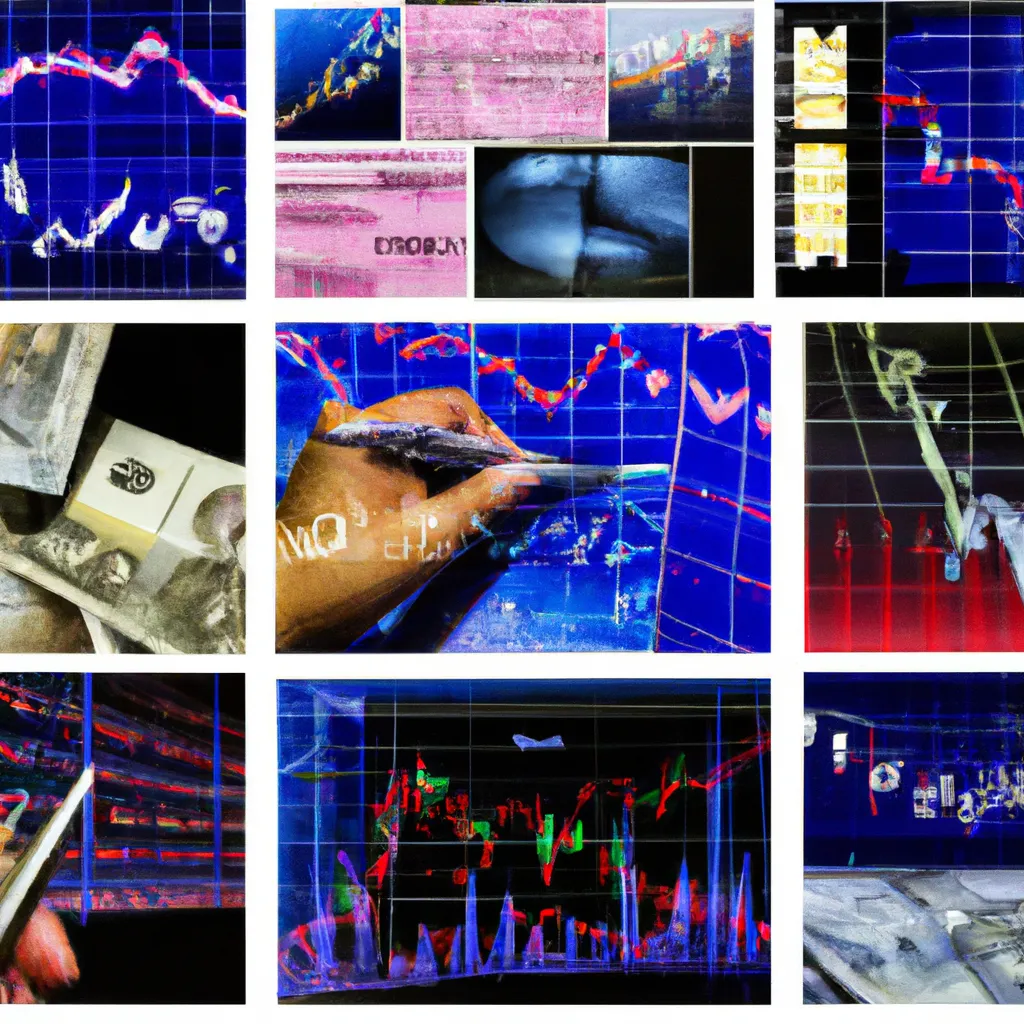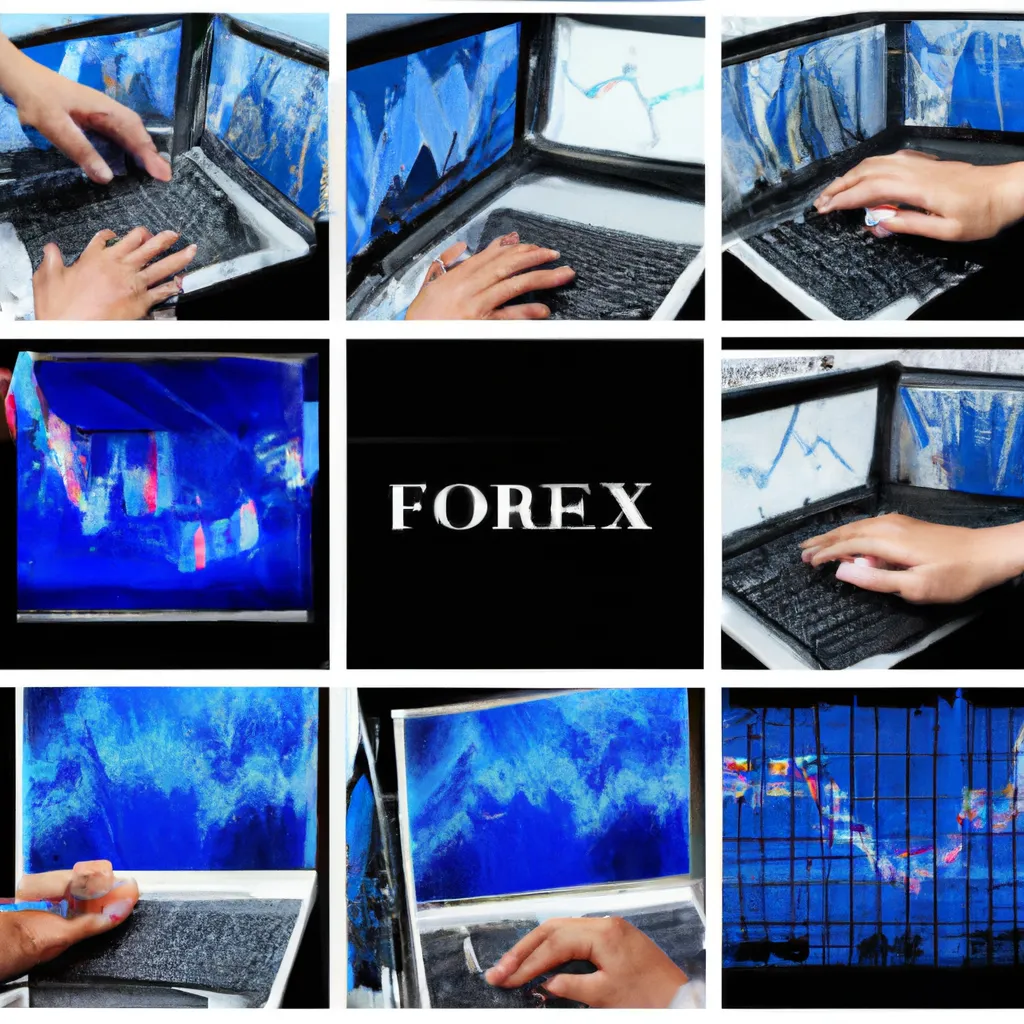Spread in Forex trading refers to the difference between the buy and sell price of a currency pair. This is essentially the cost of trading in the Forex market. It is an important aspect to consider when engaging in Forex trading, as it directly affects the profit or loss of a trade. So, what exactly does spread mean and how does it impact trading.
In simple terms, spread is the fee or commission that brokers charge for facilitating trading in the Forex market. It is typically measured in pips, which is the smallest unit of price movement in the currency market. A narrower spread means a lower cost for the trader, while a wider spread means a higher cost. This is why it is important to choose a broker with competitive spreads, as it can significantly affect one's trading results.
As Forex trading involves buying and selling currencies in pairs, each pair has its own spread. Major currency pairs like the Euro vs US Dollar (EUR/USD) and British Pound vs US Dollar (GBP/USD) typically have lower spreads as they are highly traded and have high liquidity. On the other hand, exotic currency pairs with currencies from developing countries tend to have wider spreads due to lower trading volume. Spread plays a crucial role in Forex trading, as it directly affects the profitability of a trade.
A narrower spread means that a trader can potentially make a profit with smaller price movements, while a wider spread may require a larger movement to break even. Therefore, it is important to understand and consider the spread when making trading decisions. To ensure a successful Forex trading journey, it is important to choose a reliable and reputable broker with competitive spreads. It is also important to keep track of the spread and compare it with other brokers to ensure that you are getting the best deal.
By understanding the concept of spread and how it affects trading, traders can make more informed decisions and potentially increase their profitability in the Forex market.

Understanding pips in forex trading
Explaining what pips are and their importance in forex trading
If you are new to forex trading, you may have heard about the term “pips” being used frequently. But what exactly are pips and why are they so important in forex trading? In this section, we will explain everything you need to know about pips and their significance in the world of forex trading.
What are pips?
Pips, short for “percentage in points” or “price interest points”, are the smallest unit of measurement in forex trading. They represent the smallest movement in the price of a currency pair. In other words, pips are used to measure the change in the value of one currency relative to another currency.
For example, if the eur/usd currency pair moves from 1.2000 to 1.2001, this represents a movement of 1 pip. Similarly, if the usd/jpy currency pair moves from 109.50 to 109.55, this represents a movement of 5 pips.
Why are pips important in forex trading?
Understanding pips is crucial for forex traders as they are used to measure the profit and loss of a trade. Most currency pairs are quoted to four or five decimal places, so a movement of one pip may not seem significant, but in reality, it can result in a substantial gain or loss.
For instance, if you trade one standard lot of eur/usd and the price moves by 100 pips in your favor, you will make a profit of $1,000. However, if the price moves against you by 100 pips, you will suffer a loss of $1,000. Therefore, even small movements in pips can have a significant impact on your profits or losses.
Calculating pips and their value
Now that you understand what pips are and why they are important, let's take a look at how to calculate them and their value in different currency pairs. The formula for calculating pips varies depending on the currency pair being traded.
For currency pairs that include the usd as the quote currency:
Pip value = (0.0001 / exchange rate) x lot size
For example, if you are trading 1 standard lot (100,000 units) of eur/usd at an exchange rate of 1.2000, the pip value would be (0.0001 / 1.2000) x 100,000 = $8.33. This means that for every pip the price moves in your favor, you will earn $8.33 and for every pip the price moves against you, you will lose $8.33.
For currency pairs that do not include the usd:
Pip value = (0.0001 / exchange rate) x lot size x base currency exchange rate with usd
For example, if you are trading 1 standard lot of gbp/jpy at an exchange rate of 150.50 and the current gbp/usd exchange rate is 1.3500, the pip value would be (0.0001 / 150.50) x 100,000 x 1.3500 = $8.99. This means that for every pip the price moves in your favor, you will earn $8.99 and for every pip the price moves against you, you will lose $8.99.
The role of pips in profit and loss calculations
As mentioned earlier, pips play a crucial role in calculating the profit and loss of a trade. The number of pips gained or lost on a trade depends on the position size and the change in the price of the currency pair.
For example, if you buy 1 standard lot of usd/cad at 1.3000 and sell it at 1.3100, you would make a profit of 100 pips. Similarly, if you buy 1 standard lot of gbp/usd at 1.4000 and sell it at 1.3900, you would suffer a loss of 100 pips.
It is important to keep in mind that the profit or loss in pips may not always reflect the actual monetary value of your trade. This can vary depending on factors such as the exchange rate, lot size, and leverage. Therefore, it is essential to have a good understanding of pips to accurately calculate your profit and loss in forex trading.
Pips are the fundamental unit of measurement in forex trading, and they play a significant role in calculating profits and losses. Understanding pips and how to calculate them is essential for any trader looking to trade forex successfully. Keep in mind that the value of a pip may vary depending on the currency pair being traded and other factors. As you gain more experience in the world of forex trading, you will learn to use pips to your advantage and make informed trading decisions.
Now that you have a good understanding of pips, you can move on to learning about another important concept in forex trading – spreads. In the next section, we will explain what spreads are and their impact on your forex trades.

Tips for successful forex trading
Forex trading is a popular and potentially lucrative market for those looking to diversify their investment portfolios. However, it can also be a complex and volatile market, which is why developing a trading plan and understanding risk management is essential for success. In this section, we'll explore the important aspects of developing a trading plan and managing risk in forex trading.
Developing a trading plan
A trading plan is a crucial tool for any forex trader. It serves as a roadmap that outlines your goals, strategies, risk management techniques, and overall approach to trading. Here are some tips to help you develop a strong trading plan:
1. Determine your goalsBefore you start trading, it's important to identify your goals. Is your primary objective to make a profit or to hedge against currency fluctuations? Are you looking to trade long-term or short-term? Knowing your goals will help you create a plan that aligns with your objectives.
2. Choose your trading styleThere are different trading styles in forex, including day trading, swing trading, and position trading. Each style requires a different level of time commitment and risk tolerance. Determine which style best suits your goals and lifestyle.
3. Establish risk management strategiesRisk management is crucial in forex trading. It involves limiting your losses and protecting your capital. Some common risk management techniques include stop-loss orders and setting a maximum risk percentage per trade. Make sure to include these strategies in your trading plan.
4. Understand your trading platformBefore you start trading, make sure you understand your trading platform. Familiarize yourself with the charting tools, order entry, and execution process to avoid any mistakes that could result in losses.
Understanding risk management
Risk management is essential in forex trading because it helps protect your capital and ensures long-term profitability. Here are some tips for managing risk in your trades:
1. Utilize stop-loss ordersStop-loss orders automatically close a trade if the market moves against your position. This is a crucial risk management tool that helps limit your losses and protect your capital.
2. Diversify your portfolioDiversification is key in reducing risk. A well-diversified portfolio means you have a mix of different currency pairs, timeframes, and trading strategies. This way, if one trade fails, you won't lose everything.
3. Keep an eye on market newsThe forex market is affected by various economic and geopolitical events. Stay informed about these events, as they can significantly impact currency prices and your trades. Keep a close watch on market news and adjust your strategies accordingly.
Utilizing technical and fundamental analysis
In order to make informed trading decisions, it's important to utilize both technical and fundamental analysis. Here's how you can use each to your advantage:
1. Technical analysisTechnical analysis involves studying charts and market data to identify patterns and trends. By analyzing price movements, support and resistance levels, and technical indicators, you can gain valuable insights into market trends and make better trading decisions.
2. Fundamental analysisFundamental analysis looks at economic and geopolitical factors that can impact currency prices. Factors such as inflation rates, interest rates, and political stability can all influence currency values. Stay informed about these events and use them to inform your trades.
The impact of emotions and how to control them while trading
The forex market can be highly emotional, and it's important to learn how to control your emotions while trading. Here are some tips for managing your emotions in forex trading:
1. Avoid emotional tradingIt's essential to stick to your trading plan and not let emotions dictate your actions. Jumping into trades out of fear or greed can lead to impulsive and potentially costly decisions.
2. Take breaksThe constant ups and downs of the forex market can be mentally and emotionally exhausting. Take breaks when you need it and try to maintain a balanced and level-headed approach to trading. This will help you make more rational decisions.
3. Keep a trading journalKeeping a trading journal can help you track your emotions and identify patterns in your trading behavior. This can help you understand your mindset and make adjustments to your trading approach.
Developing a trading plan and implementing effective risk management strategies are essential for success in forex trading. Utilizing technical and fundamental analysis can also help you make more informed decisions. By managing emotions and staying disciplined, you can navigate the volatile forex market and increase your chances of success.

Leverage and its impact on forex trading
When it comes to trading forex, understanding how to use leverage effectively can make a significant impact on your potential profits and losses. Leverage is one of the essential tools in the forex market, allowing traders to access larger positions in the market with a smaller amount of capital. In this section, we will define leverage, discuss its impact on forex trading, and provide tips on how to manage it to minimize risks and maximize returns.
Defining leverage
Leverage refers to the ability to control a large position in the market with only a fraction of the total value required. In other words, it amplifies a trader's buying power, allowing them to open significantly larger trades than they could with their available funds. For example, with a leverage ratio of 1:100, a trader can control a position worth $100,000 with only $1,000 in their trading account.
Leverage is a double-edged sword, as it can magnify both gains and losses. This is because traders are trading on margin, which means they are borrowing funds from their broker to open a position. While leverage can generate significant profits, it can also quickly lead to losses if used improperly.
It is essential to have a thorough understanding of leverage before trading forex to avoid unnecessary risks and protect your capital.
How leverage impacts profit and losses
Leverage affects both potential profits and losses in forex trading. The basic principle is that the higher the leveraged position, the higher the potential gains or losses per pip movement.
For example, imagine you have a leverage ratio of 1:100 and you open a position for 100,000 units of a currency pair. If the market moves in your favor by 1 pip, you will make a profit of $10. However, the same market movement against your position would result in a loss of $10.
On the other hand, if you had a leverage ratio of 1:50, the same market movement of 1 pip would result in a profit or loss of only $5. This illustrates how leverage can amplify both gains and losses in forex trading.
Calculating and managing leverage
Calculating leverage is fairly straightforward. It is the ratio of the total amount invested to the trader's margin. For instance, if you have $1,000 in your trading account and open a position worth $100,000, your leverage ratio would be calculated as 1:100.
While leverage can be a powerful tool, it is crucial to manage it properly to avoid excessive risks. Here are some tips to manage your leverage effectively in forex trading:
1. Understand the leverage ratio offered by your broker:Before opening a trading account, it is important to know the maximum leverage ratio offered by your broker. Some brokers may offer higher ratios, while others may have lower maximums. It is essential to consider this when selecting a broker and make sure you are comfortable with the available leverage options.
2. Use leverage wisely:While leverage can magnify gains, it can also quickly lead to losses. It is important to only use leverage on trades that have a high probability of success and to avoid over-leveraging.
3. Set stop-loss orders:Stop-loss orders are essential risk management tools that can help protect your capital. These orders automatically close a trade if it reaches a certain price, limiting potential losses. It is important to set stop-loss orders for every trade, particularly when using leverage, to prevent significant financial losses.
4. Keep a close eye on your account balance:With leverage, even a small decline in the market can result in significant losses. It is crucial to monitor your account balance closely and have an exit strategy in place if your balance starts to decrease rapidly.
Using leverage effectively in your trading strategy
While leverage can be high risk, it also offers the potential for higher returns. Here are some tips on how to utilize leverage effectively in your trading strategy:
1. Be aware of the correlation between leverage and risk:The higher the leverage, the higher the risk. It is important to consider the risks associated with any trade and make sure you are not overexposing yourself by using too much leverage.
2. Consider risk-reward ratios:Successful traders often follow a risk-reward ratio when opening trades, aiming for a higher reward compared to the risk. This can help mitigate the impact of leverage on potential losses.
3. Diversify your trades:Diversification is a key strategy in mitigating risks in forex trading. By spreading your capital across various currency pairs, you can reduce the impact of any single trade on your overall account balance.
In summary
Leverage plays a significant role in forex trading and can amplify both profits and losses. It allows traders to control larger positions with smaller amounts of capital but also increases risks. To use leverage effectively, it is crucial to have a thorough understanding of its impact and to manage it wisely. By following the tips mentioned in this section, you can utilize leverage effectively and improve your chances of success in the forex market.





